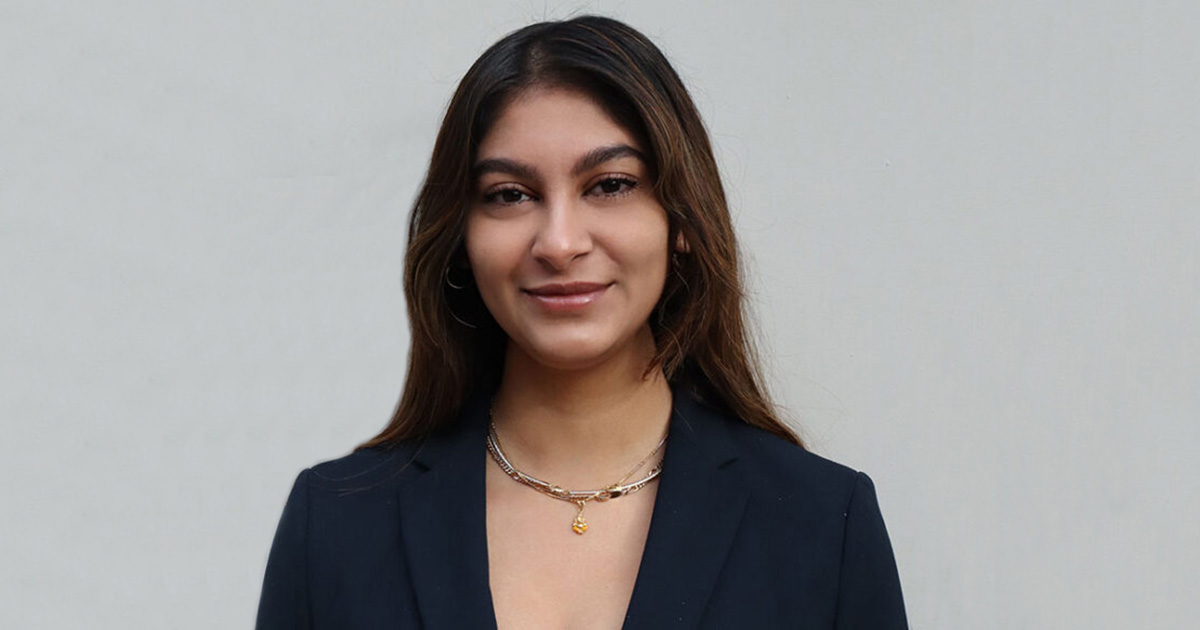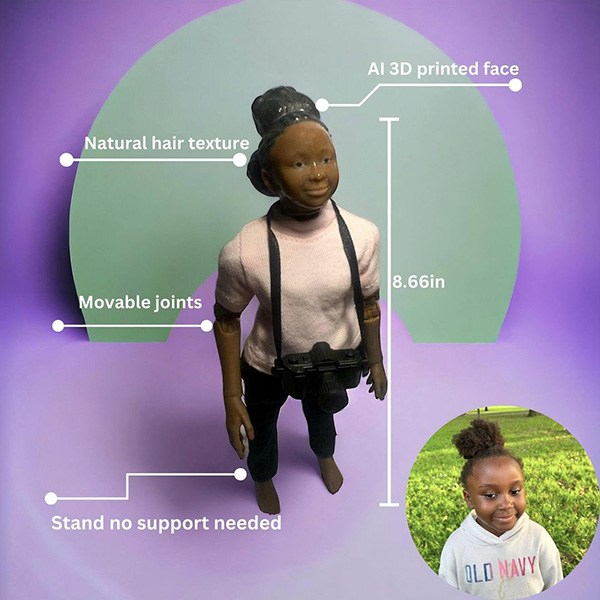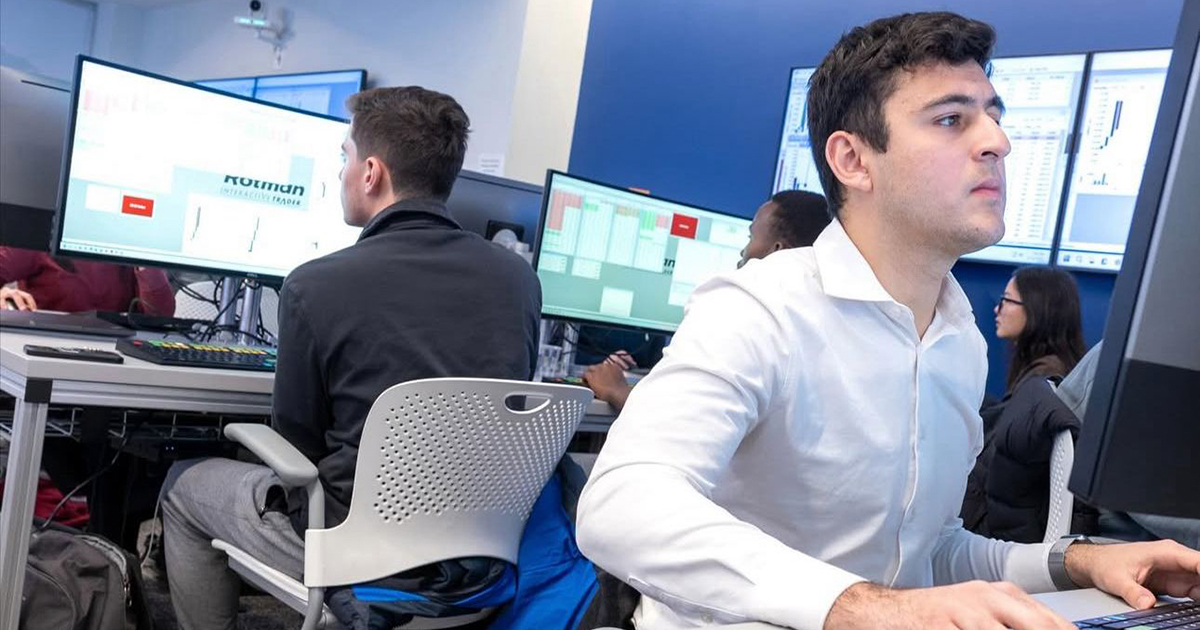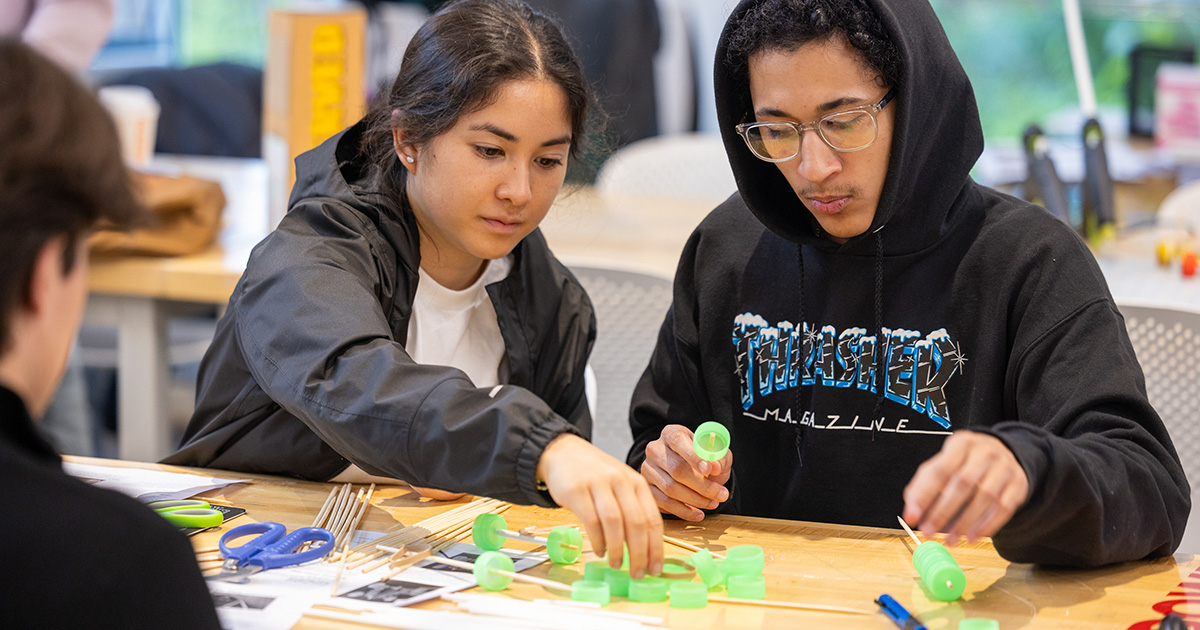Babson Student Seeks to Empower Girls and Boost Body Image Through Child’s Play

Amid news of 10-year-olds buying pricey skincare products and TikTok cracking down on toxic catchphrases such as “leggings legs,” Sanjana Agarwal ‘25 is combating body dysmorphia by focusing on a younger audience and the dolls they play with.
“I wanted to go back and try to find where it all starts. My first introduction to beauty was my mother and the dolls I played with,” Agarwal said, adding that she played with Barbie dolls among others. “The dolls I played with definitely did not look like me.”
This lack of representation can contribute to negative body image and even lead to more serious issues such as eating disorders, Agarwal noted.
Social Media and Body Image
Negative self-image has long been linked to the amount of time on social media, especially for young women. TikTok even banned the term “legging legs” last month after learning the trending topic encouraged negative body comparisons.

Another recent trend, “Sephora Kids,” has called attention to an uptick in the number of children buying expensive, potent skin-care products from Sephora and Ulta, then going on social media to detail their skin-care routines like older skin-care influencers on YouTube or Instagram.
But ReflectMe, a customizable doll created by Agarwal, seeks to help young women avoid body image criticism by supporting them before they get on social media.
“I think social media has always made people question themselves and compare themselves. I’m off Instagram for this very reason,” Agarwal said. “But I’ve always wondered how these standards get into their heads in the first place.”
Empowering Girls Through Dolls
Agarwal, who battled with an eating disorder when she was young, pointed to a case where an 8-year-old talked about feeling fat and jealous of the skinny dolls she played with. Some went on to have plastic surgery, such as a woman who removed six ribs to make herself look like Barbie.
“The subconscious is quite powerful, and many girls are comparing themselves without even knowing it,” Agarwal said.
Another study by the National Library of Medicine found that girls who played with average-sized dolls ate more than girls who played with skinny dolls. The hope, Agarwal said, is if girls admire the dolls they play with, then dolls that look like themselves will help boost self-acceptance.
“Instead of the person changing themselves to look like a doll, we’re changing the doll to look like the person,” Agarwal said.
Self-Reflection in ReflectMe
The result of Agarwal’s efforts is a scalable, customizable doll which uses AI technology and 3D printing to resemble its owner. Standing at 8.6 inches tall with natural hair texture and built-in joints, the doll offers a representation of diversity often lacking in mainstream toy markets.
Agarwal emphasized the importance of customization, explaining that seeing features that girls may have previously disliked represented in a doll can help children develop a positive self-image.
“Instead of the person changing themselves to look like a doll, we’re changing the doll to look like the person.”
Sanjana Argawal '25
But her vision extends beyond representation; it’s about empowerment. By providing children with dolls that reflect their own appearance, Agarwal hopes to instill confidence and self-esteem from a young age.
“A lot of people ask me why I didn’t make a digital doll, but I believe the physical face is so important to replicate,” Agarwal said. “There are also studies that indicate that traditional, physical play activates the creative side of children. The child’s ability to touch and interact with the doll is priceless.”
Agarwal, who is planning to launch a Kickstarter campaign in September, continues to refine her product and expand its reach. She remains committed to her mission of promoting positive body image and self-acceptance among children.
Posted in Community




